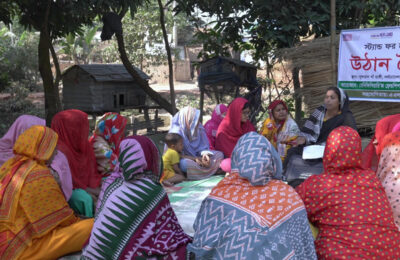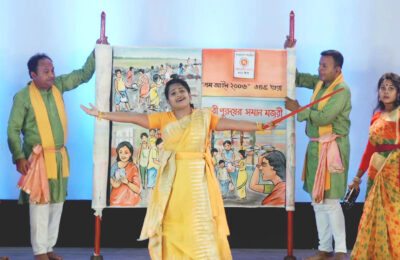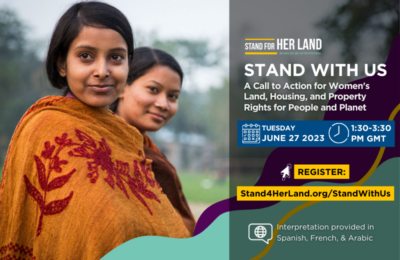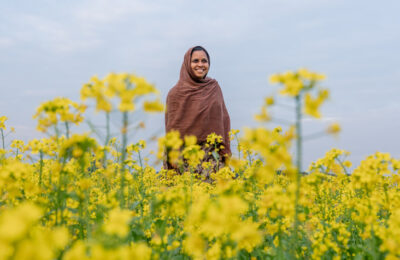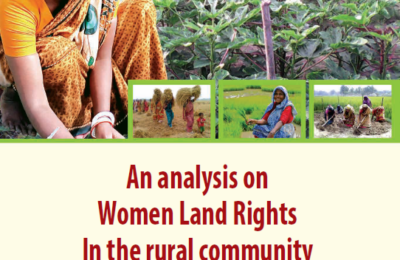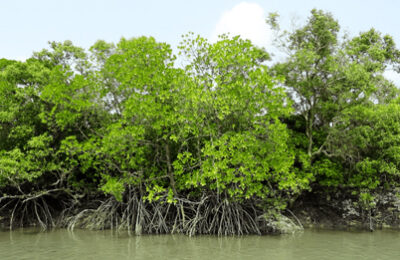Barriers to Ensuring Women’s Land Rights and the Way Forward
The Daily Star — In a roundtable with ALRD and partners, experts highlighted barriers to women’s land rights in Bangladesh, including discriminatory inheritance laws and limited land ownership despite women making up 58% of agricultural workers. Recommendations included equal inheritance rights, policy revisions, and greater recognition of women's agricultural contributions.
New Video: A Thousand Voices
Around 2,500 people, mostly landless and Indigenous women from around Bangladesh, attended a mass gathering in Dinajpur and raised their voices strongly against the "Zero Landless" declaration of the government. The event was organized by the Community Development Association (CDA) and ALRD with the support of the Stand for Her Land (S4HL) Campaign.
Quarterly Updates – August 2024
Catch up on the latest updates from each S4HL coalition.
NEW VIDEO: Social Change Maker Rita Murmu, community leader in Dinajpur
Hear from Rita Murmu, social change maker and community leader, and various people from her community about their journey to learn about, strengthen, and then take action for women's land rights in Chehelgazi, Dinajpur, Bangladesh.
Emergence of a Change Maker: Monira Begum, paralegal of Faridpur
Watch a new video about Monira Begum and other community women and men in Bangladesh who were trained as paralegals on women’s land rights and social norms change. They now work together to support other community women who are facing land-related difficulties and access to government support systems.
Women’s Land Rights “Pot Song” — S4HL Bangladesh
The Bangladesh coalition produced a "pot song," a form of folk storytelling, to help raise awareness about women’s land rights around the country.
Stand With Us: A Call to Action for Women’s Land, Housing, and Property Rights for People and Planet
27 JUNE 2023 — The Stand With Us global webinar will bring together Stand for Her Land coalitions and partners from six countries to share their progress in implementing the campaign since its launch in March 2022.
Land is power: act now to end inequality
Equal inheritance rights are a path toward achieving an equitable, hopeful future; they are positively associated with higher levels of women’s entrepreneurship and can lead to economic empowerment. Read Monoara's story and how equal inheritance rights can help us achieve transformative change now.
Report: An analysis on women’s land rights in the rural communities of Bangladesh
This assessment examines identification of legal and policy gaps regarding women’s access to land rights, social norms, and behavioral practices among different communities.
At COP27, a Call to Root Climate Action and Justice in Land Rights for Women and Rural Communities
In Bangladesh’s Sundarbans, life revolves around coastal mangrove forests. But as climate change effects worsen, livelihoods are under threat. Read about what global actors at COP27 can do amid the deepening climate crisis in a piece by ALRD's Moni Rowshan and Landesa's Rachel McMonagle.





